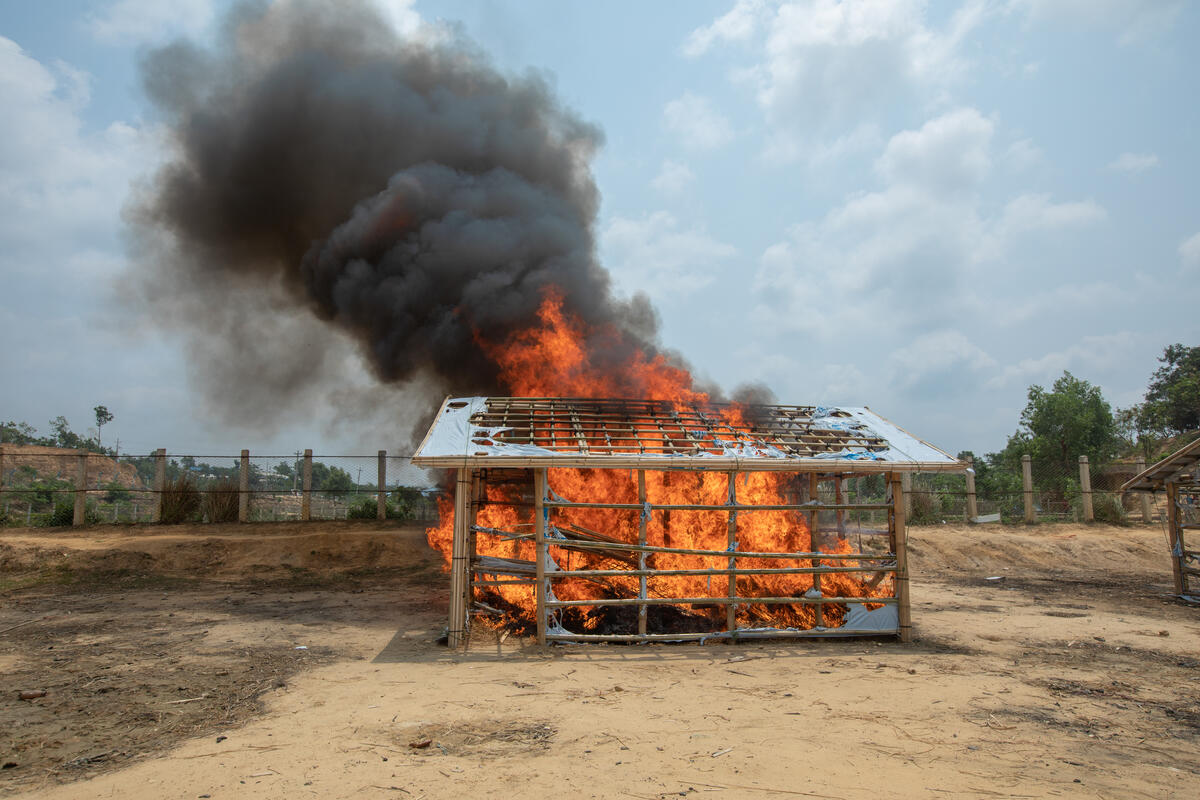Thousands of Central Africans seek refuge in Cameroon
Sitting at the bar of a hotel in Garoua-Boulaï, a small town in eastern Cameroon on the border with the Central African Republic, a middle-aged man makes a series of phone calls. Just a few weeks ago, he was a candidate in legislative elections in the Central African town of Bouar.
Insurgent incursions and violence put an end to his campaign. Together with many other inhabitants of the town, including farmers, merchants and civil servants, he had to flee in the direction of Cameroon.
"Now I'm stuck. The road is blocked," explains the man*, who is now looking for a flight back to Bangui, the Central African capital.
For several weeks, no traffic has passed on the main road between Douala in Cameroon and Bangui, as evidenced by the dozens of cargo trucks parked on the roadside in Cameroon.
Electoral violence in late December pushed some 60,000 Central Africans to seek safety in neighbouring countries.
While most have fled to the Democratic Republic of the Congo, nearly 5,000 refugees have trekked through the bush to reach neighbouring Cameroon, avoiding the road and armed groups. Thousands more have sought safety in Chad, and the Republic of Congo.
Among the newly arrived refugees in Garoua-Boulaï is Gnindou Melina, who came to register with UNHCR, the UN Refugee Agency, after trekking 60 kilometres from Baboua in western CAR with her young family.
"From 19 December we began to see taxis fleeing Gallo (40 kilometres away), who told us that the rebels were on their way to Baboua. We left on 21 December on foot with the children,” she says. “We had to walk because there were no more bush cabs. We walked, walked, walked to Garoua-Boulaï."
“We had to walk because there were no more bush cabs."
Now, Melina finds it hard to imagine returning to her country, and says she is ready to go anywhere, as long as she and her family can live there in peace.
Thirty minutes’ drive from the border, the Gado refugee site is already home to more than 26,000 Central African refugees who fled previous violence in 2014. Teams of carpenters are working to build 300 emergency shelters to house some of the new arrivals, but others will have to find shelter in local communities.
"I have many children. I don't have any money, what am I going to pay for housing with? I prefer to go to Gado. Will we find housing in Gado? What to eat? I don't know, I don't know. Here to find food is a bit difficult with the children", says Josephine Oumarou, who also fled the fighting in Bouar.
Maurice Moussouravi, Head of the UNHCR office in Meiganga, which runs the Gado site, says the situation is manageable for now. "With the support of our partners, we can cope with these arrivals and offer shelter, food and care to those who want it. However, if the influx should continue, with the Cameroonian authorities, we will direct the refugees to the best place to be taken care of and above all to be safe."
The World Food Programme and UNICEF are also supporting UNHCR in its response to this new emergency, "but resources remain limited and we will need all the good will to continue to assist the new arrivals, if the influx should increase," said Moussouravi.
* Identity witheld for protection reasons.










